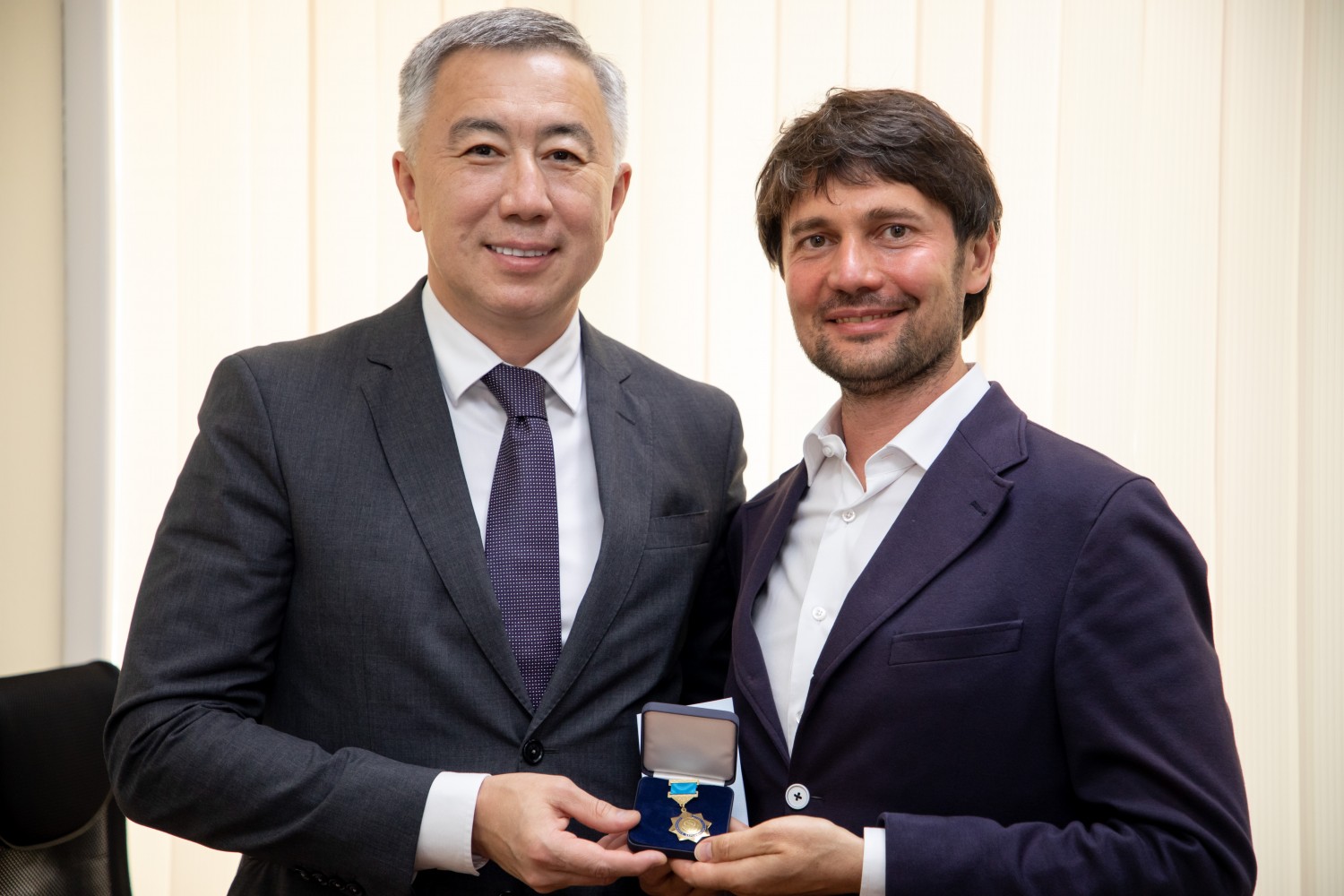The BRICS Competition Centre, which operates as part of the Higher School of Economics, is expanding its partnership network in Kazakhstan. This decision was made on the 5th of June at a trilateral meeting of the head of the FAS Russia Maxim Shaskolsky, chairman of the Agency for the Protection and Development of Competition of Kazakhstan Serik Zhumangarin and Director of the BRICS Competition Centre Alexey Ivanov.
The main topics of discussion were the issues of cooperation between the competition authorities of the two countries, including global transactions of economic concentration; collaboration within the framework of the UNCTAD (UN Conference on Trade and Development), as well as the work of the BRICS Competition Centre and joint initiatives with its participation.
During the trilateral meeting, Serik Zhumangarin awarded Alexey Ivanov with the badge 'Монополияғақарсықызметтіңүздігі' ("Excellent Worker of the Antimonopoly Service") of the Republic of Kazakhstan.
One of the priority tasks of the Centre today is developing proposals and recommendations for improving antimonopoly legislation focused on the expanded BRICS-plus format and developing common methodological approaches to law enforcement, and improving competition policy in the BRICS and EEU space. The Centre conducts research work for the Eurasian Economic Commission on antimonopoly regulation of digital markets and acts as an advisory body when considering transactions and complaints in this area.
Alexey Ivanov, Director of the BRICS Competition Centre and Institute for Law and Development of the Higher School of Economics - Skolkovo, in 2015 was selected by the Organization for Economic Cooperation and Development (OECD) as a leading international expert to conduct a comprehensive assessment of the state of affairs in Kazakhstan in the field of competition and compliance of the country's legislation and policies with the rules organizations.
The country's antimonopoly regulation reform was introduced as a separate clause in the Plan of the Nation - a document describing 100 specific steps to implement five institutional reforms of the head of Kazakhstan, which was named "One Hundred Steps of Elbasy". Paragraph 53 read: "Changing the concept of the Antimonopoly Service and bringing it in line with OECD standards. The renewed service should focus on promoting free competition. "In October 2020, on behalf of the President of Kazakhstan Kassym-Jomart Tokayev, the Agency for the Protection and Development of Competition was created with direct subordination to the head of state.
Serik Zhumangarin, Chairman of the Agency for the Protection and Development of Competition of Kazakhstan, said: "We pay great attention to working with various multilateral international platforms. With the unification of the BRICS, Kazakhstan has many points of contact, both literally and figuratively. Both Russia and China are our neighbors. We are ready to work to satisfy the existing demand for a change in the architecture of the world economy, where antitrust law can become an effective tool. And, of course, Kazakhstan is faced with the task of developing competition, and we plan to build up our own expertise and research competencies based on the experience of colleagues from the BRICS Competition Centre, based at the Higher School of Economics."
Alexey Ivanov, Director of the BRICS Competition Centre, said: "I am sure that the development of a common expert network on the basis of the BRICS Competition Centre will help bring cooperation between Russia and Kazakhstan on economic issues to a new level, as well as strengthen Kazakhstan's position in work on the BRICS-plus format. We have been cooperating with many scientific and expert centres of Kazakstan for a long time, and we will establish new contacts and expand the joint applied research plan to use the results of academic cooperation for the development of law enforcement practice. The legal systems of our countries continue to converge thanks to the process of Eurasian integration, and we are all ready to work actively in the interests of the economy and consumers."
Источник: сайт НИУ ВШЭ




